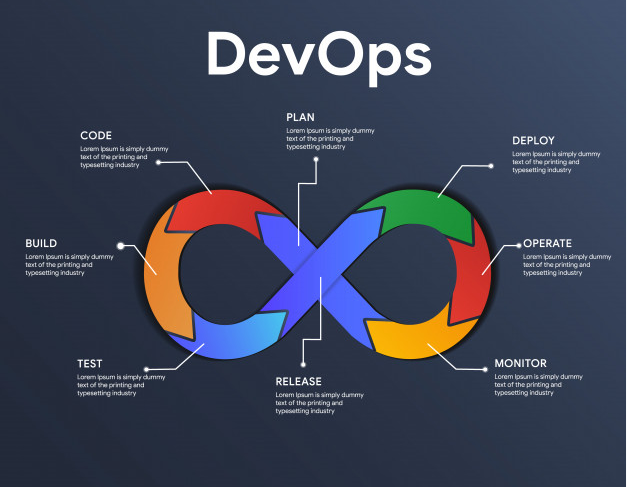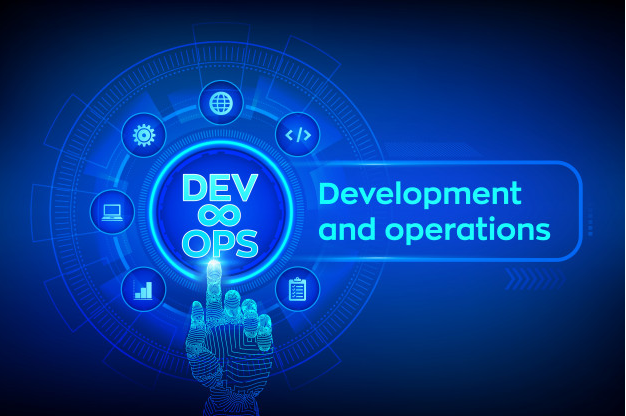The How’s and Why’s of learning DevOps
Audio : Listen to This Blog.
The whole software development industry has been talking DevOps in the recent years. If we say that collaboration is the key in the present day workspace, there is nothing that speaks the language of collaboration like DevOps. If you have encountered disagreements between the Operations and Developers teams in your enterprise, know that you are not alone. This has been the common scenario is several workplaces. Hearing out the grievances of several software development teams, agile experts came up with the concept of DevOps. Amalgamating the functionalities and bringing together the crucial teams to work as one, DevOps has been accepted warmly by several large organizations.
How should you learn DevOps?
DevOps comes as an experience. It is more of an industrial function rather than a designation while you might still hear about DevOps engineers. So if you are planning to learn DevOps do not get overwhelmed by the resources and tools available to learn. There are several courses in the industry to help you slowly sink into the DevOps trends. Getting the right start can assist you easily make a career in DevOps. It is more of a paradigm shift that tries to flex the more rigid team interactions. Developers and Operations team members work together from an early stage of development so that the project flows uninterrupted. The development team would get the necessary support in infrastructure and resources on time and the operations team would no more be loaded with tough to meet requirements from the development teams.
- Are you a beginner? Start with Git– Learning SCM like Git is a great place to start when it comes to DevOps. This is mainly because of the unmatchable significance of version control in software development cycles. This is one reason why to obtain a slice of DevOps, you should, as a developer try to learn version control systems.
- Know the CI tools-If you have come across CI tools like Jenkins and ignored them, know that these form an integral part of a DevOps journey.
- Scripting for automation– Shell script for example would come in handy as you move to DevOps as it would involve automation. This would help virtualization and improve the relations between the Development and Operations teams.
- As we speak about virtualization, tools like Vagrant and Docker have their special place too.
There are numerous other tools that you can slowly assimilate and move ahead in DevOps. As in the present day situation most hosting occurs in the Cloud, AWS, Azure and the likes cannot be neglected. Puppet, Bash, Perl and other programming languages besides Java are also found useful. DevOps is all about identifying metrics, collaborating and automating. Gather all the associated tools. Thus a stable journey into DevOps stream would be a long and enriching process.

Why should you get into the DevOps race really?
There are many developers out there. How do you gain an edge in this competitive market? By understanding the fact that with the growing trends, Developers and the Operations teams can’t function discreetly, DevOps is what would give you that advantage. Though we have been talking about the software development firms, it is not just these companies but also the IT teams in businesses big and small that would benefit from DevOps. Here are the perks that DevOps would offer to your company:
1. Faster and more consistent deliveries:
When the two concerned teams function as separate silos it leads to delays which are evident and still sometimes unavoidable. By bringing them to resonate, and enhancing the transparency, there are fewer changes anticipated. This would shorten the development cycle length on the whole. To measure the improvement in service quality with DevOps adoption MTTF and MTTR metrics can help. You would see a significant drop in the MTTR value thanks to the quicker resolutions. This is what creates the consistencies in delivery as well. Delivery is continuous and quick even for the large scale projects.
2. Failures in deployment go down:
Defects can be spotted easily. As the whole project is broken down into manageable smaller sections, errors can be identified on time. This would also bring down the failures in deployment. Right from the first phases in development, operations concerns are brought into the picture. This is why even before the final product deployment failures can be stopped right on time. This in turn reduces the process length. This would also condense the time required for recovery.
3. Change in the culture of work:
Early engagement of the teams makes the interactions smoother. This would in turn lead to employee satisfaction. The employees can develop as professionals and can also lead to the team’s and thus the business’ overall development.
4. Customer satisfaction:
All the benefits stated finally cause faster product deliveries. And as service quality is also made better, eventually DevOps creates better customer satisfaction- and thus it is finally a win-win situation for the businesses and the customers.
The concept itself is all about flexibility. So there is no rigid path to follow to advance towards establishment and acceptance of DevOps. This should happen slowly and steadily. To understand and learn DevOps, it would also be essential to grasp the wider picture and to understand the business objectives. With the changing business environment, it is time to adopt to such collaborative approaches so as to bring the influential teams together and help them function in unison.



